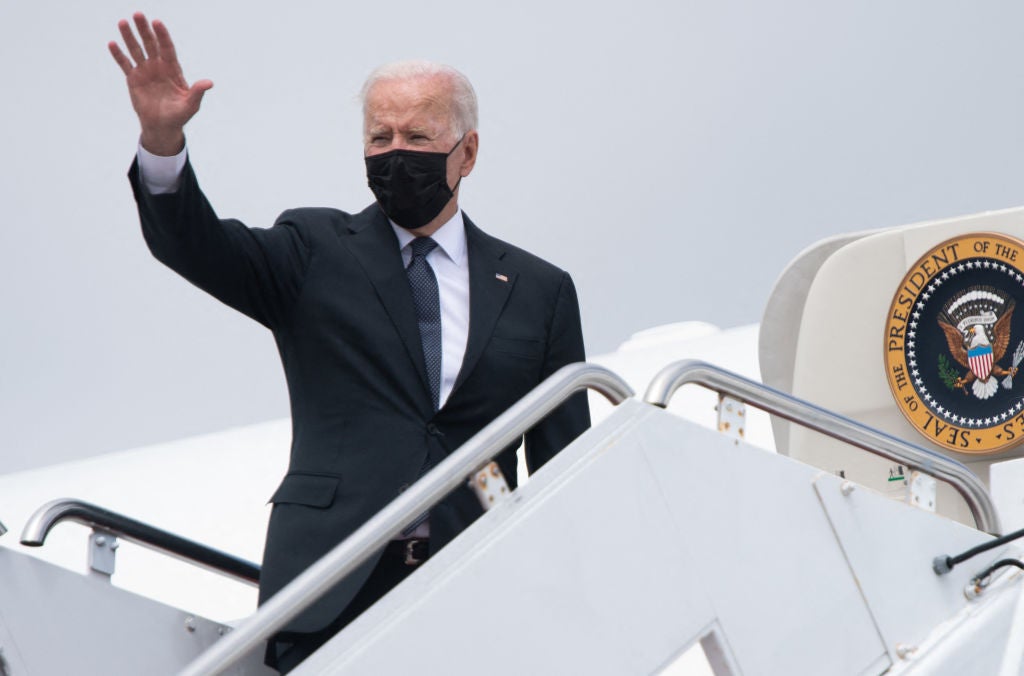Afghanistan marks a turning point – the once strong western liberal alliance is in danger of disintegrating
There’s a clear lack of direction in Britain’s long-term foreign policy – we must have clarity on what we stand for, or the world will move on without us, writes Salma Shah


While the situation in Afghanistan is still volatile and the complex efforts at evacuation continue, it’s worth reflecting on what this means for Britain and its foreign policy in the long term. Should we have been in Afghanistan? Were we right to leave? These questions will be hotly contested and will fuel a polarised debate for some time to come, but they expose, quite starkly, the absence of any long-term foreign policy objectives on the part of the UK.
That we were caught off guard, and dependent on the whims of the American president, underlines a lack of articulation about what Britain wants to achieve in the world. We know that Brexit was intended to bring back some form of sovereignty to the UK, and campaigners suggested the break from Europe was about not isolationism but a new form of internationalism, with a renewed confidence in who we are, establishing an evolved position for “brand Britain” abroad. But so far this has been nothing but rhetoric, with no sign of substantive policy in any direction.
The UK is a top-10 global economy and an equally important military power. Our resources and history mean that, for now, we retain the right to be at the top table. But we fail to appreciate that we need a purpose to apply all that strength and experience to. We’re also troubled by uncertainty about whom we want to do business with. Our relationship with China is awkward, our relationship with the US is increasingly fractious, and in many respects, our relations with the EU are downright hostile.
The context is ripe for a global policy reset, the tectonic plates are shifting, and if we’re going to shape the next few decades we need to take an assertive position characterised by liberal democratic values.
Change has been bubbling away for some time, with the dynamics of global power morphing so much that our current biases no longer serve them. The departure from Afghanistan should mark a turning point, where we recognise that the events that once enthroned the west, and the ideas that once translated into its success, are no longer enough to sustain our role. The post-war world that gave way to the post-communist world now needs to define itself in the post-terror world.
The rise of China, which has posed a deep, existential problem for the US, threatens the very basis on which we’ve built our world view. It is no longer a given that free capitalist democracies are the only route to growth. When capitalism roundly defeated communism in the 1980s, we expected it to be a permanent victory. It is now clear that it wasn’t. The battle for economic ideas is another frontier for international relations.
Our own relationship with long-standing allies requires some deep analysis too. It’s perhaps too dramatic to suggest the fallout from Afghanistan marks a deep schism between us and the US, but we are seeing a pattern of international retreat from across the Atlantic, which will have an impact on how the UK engages with the rest of the world, without the certainty of US intervention or the understanding that we share broadly similar objectives. The once-strong gang of the western liberal alliance is in danger of disintegrating.
The UK has an important role to play in the world. Climate change, economic fairness and showcasing an important democratic model are subjects on which we can make an important contribution, but this requires us to have a strong position, and to start to prioritise foreign affairs as a key area that will unlock some of our biggest problems. We must have clarity on what we stand for in the world, otherwise the world will move on without us.



Join our commenting forum
Join thought-provoking conversations, follow other Independent readers and see their replies
Comments